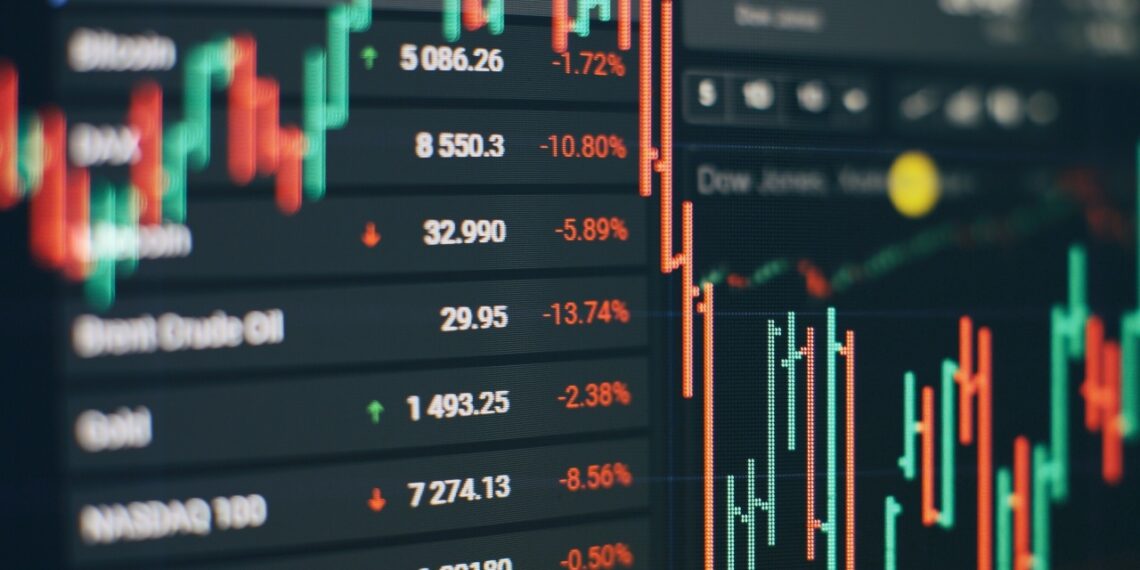No products in the basket.
On October 3, 2024, the market closed with the SET index at 1,442.73, down 8.67 points, with a trading volume of 15,258,077 shares valued at 57,538.87 million Baht. The top performers included INTUCH (+4.95%) and AOT (+0.39%), while BDMS (-2.48%) and CPALL (-0.77%) declined. Overall, foreign investors had a net selling of 5,361.17 million Baht.
Key Points
- Market Status:
- The market is closed as of October 3, 2024, with the SET index at 1,442.73, down by 8.67 points.
- Key indices include SET50 at 914.94 (-3.04), SET100 at 1,993.74 (-10.66), and SETTRI at 10,876.28 (-0.90%).
- Trading Summary:
- Total trading value is 57,903.77 million Baht as of October 2, 2024.
- Institutional buying was +4,655.62 million Baht, while foreign sales were down -5,361.17 million Baht.
- Top Stocks:
- INTUCH: 95.50 (+4.95%), 2,916,399.90 Baht
- BDMS: 29.50 (-2.48%), 2,669,396.68 Baht
- CPALL: 64.75 (-0.77%), 2,244,825.08 Baht
- PTTEP: 133.50 (-0.37%), 2,226,680.20 Baht
- AOT: 64.75 (+0.39%), 2,225,789.28 Baht
Global Market Roundup: Key Trends and Insights
As we navigate the complexities of the current global market, several key trends and insights are shaping the economic landscape. Recent data illustrates a mixed bag of recovery signals, inflation pressures, and shifting consumer behaviors, all of which come into play as governments and central banks respond in varying capacities.
1. Economic Recovery Continues but Unevenly
Global economic recovery remains a prominent theme as we enter the final quarter of the year. The International Monetary Fund (IMF) has recently projected a modest growth rate of 4.4% for advanced economies in 2024, a slight uptick from previous estimates. However, this rebound is not uniform. Developed nations are experiencing a more robust recovery, while emerging markets grapple with structural challenges, including inflationary pressures and geopolitical tensions.
2. Inflation Challenges Persist
Inflation continues to dominate discussions in financial markets. Many economies are still facing higher-than-expected inflation rates, prompting central banks to adjust their monetary policies. The U.S. Federal Reserve is particularly scrutinized as it navigates between tightening interest rates and fostering economic growth. In the eurozone, inflation is also worrisome, with energy prices and supply chain disruptions contributing to rising costs. Investors are keenly watching these moves, as interest rate policies will significantly influence market dynamics.
3. Sustainability and ESG Investments
Sustainable investing is gaining momentum as more investors prioritize environmental, social, and governance (ESG) criteria. Companies that demonstrate commitment to sustainability are not only attracting interest from ethical investors but are also experiencing improved performance. The growing adoption of electric vehicles and renewable energy sources highlights a shift towards sustainability, thereby creating opportunities in green technology sectors.
4. Digital Transformation Accelerates
The pandemic has accelerated digital transformation across industries. E-commerce continues to thrive, with businesses investing heavily in digital platforms and cybersecurity. The tech sector remains robust, driven by innovations in artificial intelligence, fintech, and cloud computing. Consumers are increasingly seeking conveniences offered by these digital solutions, which is reshaping traditional business models.
5. Geopolitical Tensions and Supply Chain Resilience
Geopolitical tensions, especially between major economies, have surfaced as a significant concern for investors. The ongoing trade disputes and supply chain disruptions have compelled companies to reassess their dependency on global suppliers. Many are now prioritizing supply chain resilience, leading to increased interest in onshoring and regional partnerships.
Discover more from Thailand Business News
Subscribe to get the latest posts sent to your email.














